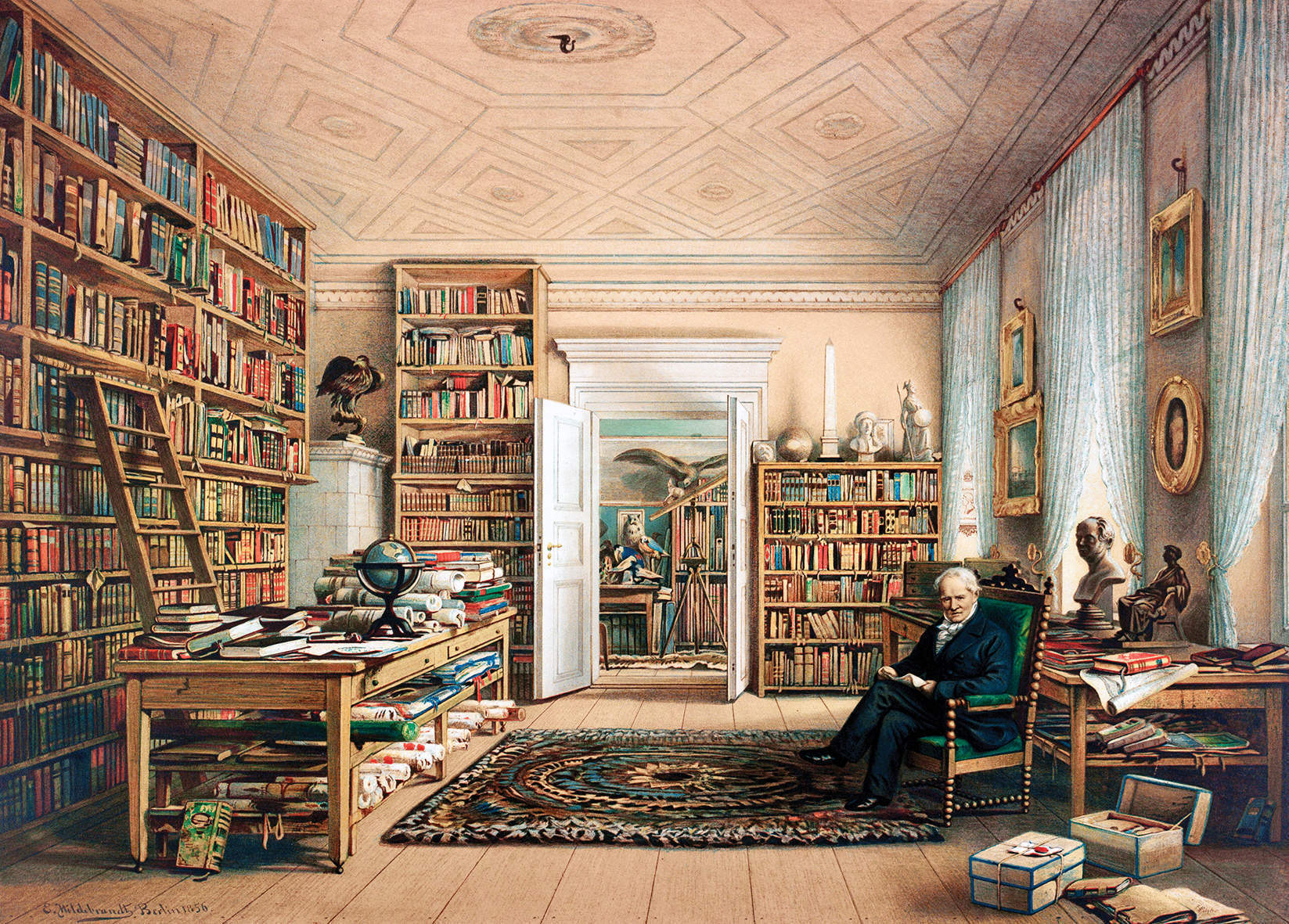
In his day, Alexander von Humboldt (1769-1859) bestrode several important spheres of human endeavour. The poet Goethe hung on the young scientist’s every word and declared that he could learn more in an hour of his company than in eight days of reading. Darwin pronounced him the greatest scientific traveller who had ever lived, while Simón Bolívar, the revolutionary statesman and architect of much of modern South America, suggested that Humboldt had done more good for the people of his continent than all of the European conquerors.
Such was the Prussian naturalist’s fame that his birthday was celebrated at the royal court of Siam and when he lectured at a Berlin auditorium it was packed beyond capacity hours before he even appeared. Yet, on his death at the age of 89, Humboldt was so poor that he could hardly afford a set of his own books. Nor has the subsequent passage of time been kind to his legend. Today, aside from the oceanic upwelling in the South Pacific known as the Humboldt Current, his name is little used and excites almost no awareness of the owner’s story.
But what a story it is. The real achievement of this wonderful biography is that it is as much a rattling good read as it is an explicit attempt to revive Humboldt’s reputation. It all began in rather mundane circumstances. His cold, aloof mother came from business, his father from the military, and the young Humboldt was educated by private tutors at the family estate near Berlin. Connections to the Prussian royal family gave him a head start in what might have been the dullest of careers, yet beneath several stolid years in the ministry of mines was a volcano of intellectual fervour.
Humboldt devoured languages and scientific literature alike, while nursing travel ambitions that spanned whole continents. The British blockade during the Napoleonic wars may have delayed his journey but the young Prussian’s world conquest was as inevitable as it was impressive.
For five years, from 1799 to 1804, Humboldt zigzagged across the Caribbean, as well as South and North America, incessantly measuring, investigating, recording, collecting and thinking. No one had ever subjected the New World to so much scrutiny. Humboldt expended a good chunk of his inheritance buying and wearing out the finest scientific instruments.
For some inexplicable reason – given that Humboldt loathed the institution of slavery and held their colonial administration in particular contempt – the Spanish authorities gave him unprecedented access to their Mexican archives. He consumed the data wholesale and eventually produced groundbreaking works of political economy on the region. His true love, though, was nature. He described the full range of his natural historical findings in 34 volumes that took him decades to complete. He also shipped home 60,000 botanical specimens and scattered them across the learned institutions of Europe with astonishing generosity. Almost 2,000 species were new to science and represented a quarter of all plants known to Europeans at the end of the 18th century.
Yet Humboldt’s real gift was not for anatomising life but for envisioning it as a single, Gaia-like process. “Nature is a living whole,” he said, “not a dead aggregate.” Andrea Wulf identifies the crucial epiphany as coming during an ascent of the Ecuadorian volcano Chimborazo, after which Humboldt produced his Naturgemälde, a map synthesising his insights into plant distribution as determined by altitude, climate and other environmental factors. In essence, it was the first ever ecological study.
Unfortunately it was a younger German scientist Ernst Haeckel who coined the term and established ecology as a major discipline. Therein lies a peculiar irony of Humboldt’s legacy. Wulf shows how there are no decisive theories or definitive books associated with his massive achievements. Darwin may have relentlessly mined Humboldt’s multi-volume works and underlying the Englishman’s journey aboard the Beagle one can easily perceive the influence and example of Humboldt’s earlier odyssey but it is the former who is a household name.
Wulf therefore places alongside her central narrative several tributary accounts of the other significant 19th-century figures who shaped our modern relationship with nature. These include Darwin and Haeckel but also two Americans, Henry David Thoreau and John Muir. Humboldt’s impact is everywhere in their books and lives and these ancillary portraits help us to see more clearly the true qualities of the older scientist.
Humboldt’s originality and impact lay not just in his capacity to see nature as a whole but in his ability to move from radically different perspectives. He could scrutinise a plant or lichen down to the cellular level but relate the microscopic detail to the totality of life. It is no coincidence that his last, five-volume work was called Cosmos.
Wulf is largely uninterested in Humboldt’s sex life – but then so was Humboldt – and she barely squares his republicanism with his later time as chamberlain to a repressive monarch. What the author seeks to unravel is Humboldt’s lifelong Ulyssean quest for nature. In this she offers us the most complete picture of one of most complete naturalists who has ever lived.
The Invention of Nature: the Adventures of Alexander von Humboldt, the Lost Hero of Science by Andrea Wulf is published by John Murray (473pp, £25)
Mark Cocker’s most recent book is Claxton: Field Notes from a Small Planet (Vintage)
This article appears in the 02 Dec 2015 issue of the New Statesman, Syria and the impossible war






